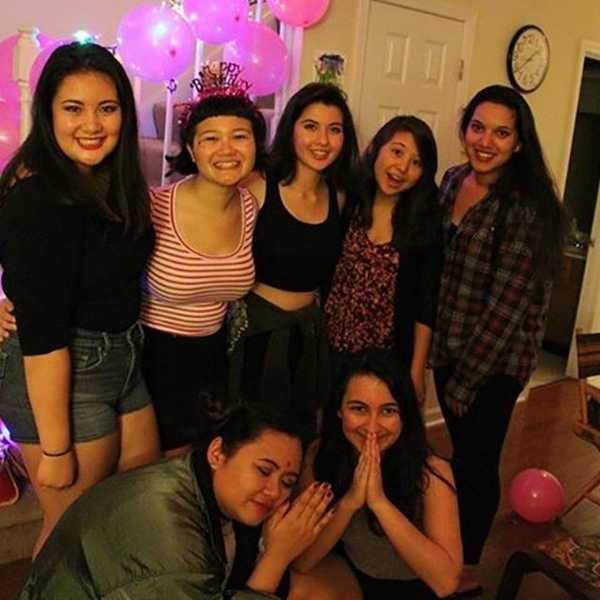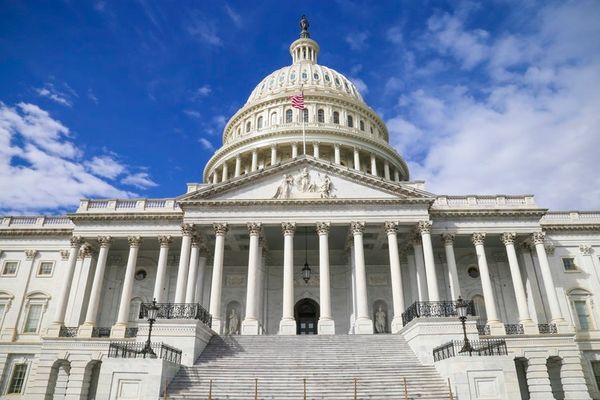As we continue embarking into Trump’s America, the world gets a bit weirder (and scarier) every day. It’s clear we’re in a transitional time as Trump (or whoever’s actually running the show) gets settled in.
It’s hardly been a month, yet we’re already engaged in a tug-of-war over Trump’s travel ban, which has sufficiently screwed up many (good, law-abiding, innocent, etc…) people’s travel plans, separated families, and strained some of our international relationships. (Shout out to that time Trump tried to pick a fight with Australia last week.)
The latest development is a crackdown on tracking down undocumented people, which is really scary, to say the least. I have friends, peers, teachers, etc. here at Loyola Marymount Uuniversity that would be directly affected by this, whether it be they are undocumented themselves or know someone who’s in danger.
And, of course, my Filipinx people are in danger, as well.
Aside from Latinx groups, there are a fair amount of undocumented Filipinxs here in the US—some 300,000+ according to CNN Philippines, that they estimate to be in danger of being affected. I’m sure the actual number is larger.
One of the more interesting parts of my college transition last year is that of my surroundings in racial terms. I graduated from a pre-dominantly white high school, then moved to one of the most diverse cities in the world, a home to many members of the undocumented community. Because of this, for the first time in my life, I’m surrounded by other people of color (POC) more than ever before. Especially Asians.
It’s fun being around more people of my race, but it’s also made me realize what I believe to be a major, hypocritical problem: Asian American silence.
Throughout the past few months, as we saw bigotry and racism take over parts of our country, I’ve watched many POC rise up in preparation to fight for the next four years. Blacks, Latinxs, Muslims—seemingly, every group but Asians. Why?
I can’t claim to understand Asian silence from a first-generation point of view; my immediate and interracial family is very Americanized. Growing up, I talked to my parents every now and then about current events and social justice issues. Though we never physically took to the streets in protest, I never felt any of us would just bow our heads in silence when something was wrong in our country. I knew I had the right to go against whatever our president of the time tried to do or say.
But I’ve noticed a difference in other Asians. If I had to summarize the mood of Asians when it comes to politics in one word, it’d be apathetic.
From what I’ve gathered talking to other Asians about this topic, culture plays a large role in this phenomenon. Put your heads down, keep working hard, make it on top of everyone else. Block out distractions, accept our fate, move on.
Um…WHAT????
I can’t speak for all Asian communities, but when it comes to Filipinxs who have this attitude, I’M BLOWN AWAY!
I’m taking Asian-Pacific American history this semester, and as we progress further in the course, I’m more and more outraged by the silence of my fellow Filipinxs and Asians. Time for a history lesson, everyone.
Starting with the Chinese back in the 1800s, Asians and Pacific Islanders came to America as laborers. Though it wasn’t a slavery or indentured servitude kind of system officially, it was very, very similar. Let’s go through America’s relations with the varying Asian nations, shall we?
First, the Chinese came over during the Gold Rush, then as cheap labor for plantations in Hawaii and California. Then, in the 1880s, white workers persisted, and America passed the Chinese Exclusion Act, which is exactly what it sounds like. If you were Chinese, good luck getting into America.
(Sound familiar to current events, hmm? I’ll give you a hint: Trump’s travel ban.)
After America grew tired of the Chinese, they went for the Japanese. Rinse and repeat, Japanese do work, white employers pit the Chinese, Japanese, and Native Hawaiian workers against one another, America is tired of the influx of Japanese people, then bans the Japanese.
Then the Koreans come, and America knows they can use them to abuse the Japanese. At the time, Imperial Japan was starting to grow roots in other territories, such as Korea, which led to outraged Korean workers gladly fighting to beat the Japanese out for jobs, all under the guise of the “American Dream” that they could never achieve due to legal restrictions imposed by America, which we’ll get to more of in a second.
Once America put a hold on Korean immigration (read: adding them as a footnote to the growing collection of Asian exclusion laws, right under the Japanese), Asian Indians came next in the early 1900s. The cycle repeated and Indians were eventually excluded from immigration as well.
Then there were the Filipinxs, who were quite a fiery bunch. At the time, the Philippines was a territory of America, so they were in an awkward position between foreigner and citizen. But, just like the other Asian groups, God forbid they be citizens. During this time period, through several Supreme Court cases, America made naturalized citizenship exclusive only to white/European immigrants. Asians were specifically excluded, despite Filipinxs coming from an American-dominated territory.
And what did the Filipinxs do? They fought back! They were known as one of the harder groups of workers to control among white American employers. They were inspired by figures such as José Rizal, a Filipino revolutionary who protested against Spanish colonial rule in the late 1800s. Eventually, America granted the Philippines independence, something many Filipinxs had been fighting for. But America didn’t do it out of the goodness of their hearts—no, they did it so they could cut legal ties with the Filipinx people and comfortably exclude them from immigration.
So, to review, prominent Asian groups found themselves locked into this cycle with America for about fifty years: suffer from poverty in their home countries, be promised good fortune and success in America, immigrate to America for work, be paid lower wages than white workers, be used as bargaining tools with white workers, be thrown into fights with other Asian groups through ethnic antagonism tactics, suffer poverty in America, be excluded from citizenship and eventually immigration, then die off.
It wasn’t until the 1960s that America got its head on straight and allowed proper immigration from Asia. That’s when my Filipino grandparents immigrated over, making me 3rd generation Filipina.
Despite that, many Asian Americans, especially Filipinxs, are fairly passive when it comes to our current political state, which I don’t understand. That position that several Middle Eastern countries are in right now is the same position we were in not too long ago.
Why are we allowing history to repeat itself?
How much damage will have to be done before we get off our asses and do something?
Because, at the end of the day, Asians are POC, too. I’ve had to explain the term “POC” to several Asians over the years because they’ve never heard of it, perhaps because they never thought of themselves that way for a variety of reasons.
(A friendly reminder that being “color blind” isn’t a solution; it’s just erasure, an excuse. You can still acknowledge differences and be kind at the same time. Shocking, isn’t it?)
We aren’t white. (…Well, ok, I’m white. But still Filipina, too.) Monoracial Asians, you are not white! You are not safe from racism! Though the focus is on other groups right now, once Trump has dealt with blacks, Latinxs, Muslims, and others, he’s not going to give us a pass; he’s very much going to move onto dealing with us!
At this time I’d like to remind everyone that there is a large number of undocumented Filipinxs in our country. They are just as much at risk of deportation as other undocumented groups. And President Duterte, the “Filipino Donald Trump” as I’ve heard him referred to by Filipinxs? He’s not going to help. He’s turning a blind eye on undocumented Filipinxs, literally telling them they must “help themselves.” While it’s one thing to be politically correct in acknowledging foreign countries’ laws regarding immigration, it’s another thing to basically give your own people at risk in another country the middle finger.
Asian Americans, you are not as above this as many of you think you are. Members of your communities literally endured Trump-like policies from America for years last century. We had to make a scene when the time called for it. We had to use our voices.
What would those who endured abuse at the hands of America, “the cultural melting pot”, back then have to say to our faces now, as we’re literally letting this abuse happen to other people, fellow human beings?
This has forced me to realize how privileged Asian Americans are. Other minority groups didn’t get a choice in how to respond to Trump because he directly threatened them. We got a choice and we’re clearly making the less humane one.
It speaks volumes not only of our lack of compassion for other people, but of our ignorance to our own damn history.





















